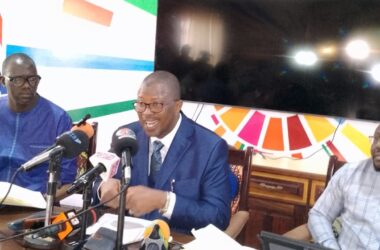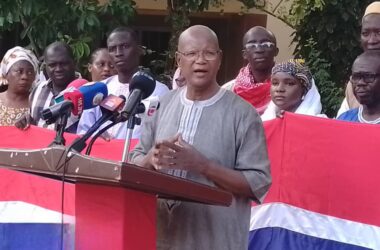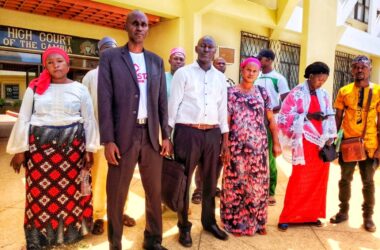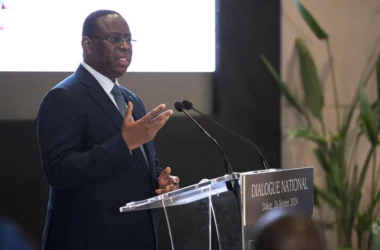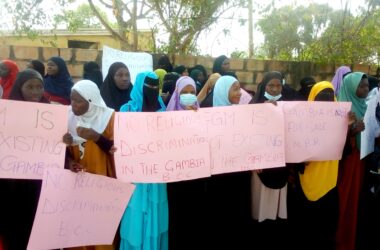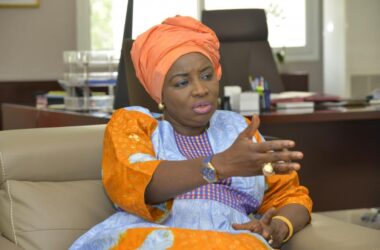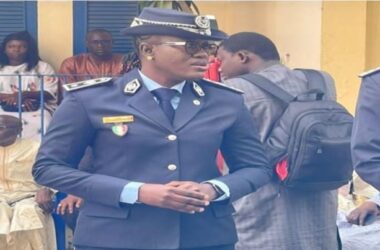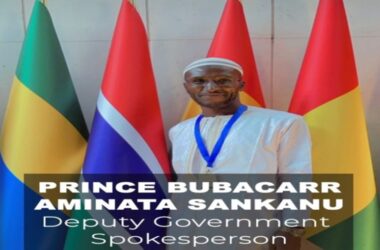By Kemo Cham
Apart from physical attacks, death threats and the various other forms of persecution individual journalists go through in countries with strong antipathy for the free press, anti-press governments have also succeeded to silence media institutions by engaging them in legal tussles, subjecting them to legal showdown with cooked up charges brought up with the ultimate aim of leaving them with very little chance of surviving. But an international non-profit making body with the goal of turning the tide against these governments has just been launched, with the goal of depriving these governments of this legal weapon. A group of eminent lawyers and media personnel last Tuesday, January 26 2010, converged in New York for the official launch of the Media Legal Defence Initiative, and in attendance was the Gambia’s very own press union president, Ndey Tapha Sosseh. She was a panelist among a host of distinguished personalities in the field, including David McCraw, head of freedom-of-information litigation for the New York Times, and anit-libel British lawyer, Mark Stephens. The often financially handicapped nature of many media institutions makes the prospect of governments having their way out in their endless effort to clamp down on the free press easier achieved, and the result is often closure, much to the disadvantage of the many oppressed population who rely on the private independent media for salvation. There is no place this is more so a common occurrence than in Africa. And, unfortunately, Gambia has of late been featuring prominently as a perfect example for such media repression references. The London-based Media Legal Defence Initiative (MLDI), funded by the MacArthur Foundation, the Open Society Institute and the Sigrid Rausing Trust, will seek to help journalists and media outlets defend their rights. It will do so by providing financial assistance to pay for legal fees, helping to access free legal advice and taking on cases in international courts and supervisory bodies. MLDI will also work towards strengthening of the capacity of lawyers to defend the rights of the media by supporting education, networking, exchange of information and cooperation opportunities for people working in the field. Observers have described the initiative as a ‘‘good news’’ for Africa’s independent media in particular. Speaking at the launch in New York on Tuesday, GPU president, Ndey Tapha Sosseh, a living example of the level of suppression the Gambian press is under, described how journalists suffered arrests and death threats back home. She made reference to only one ‘overworked’ lawyer in the country prepared to take up media cases, saying “he has security at home because he is at risk.” This goes to highlight another largely uncharted aspect of the overall situation; that even in the presence of  endless source of funding, there remains the issue of security for the legal aids. Veteran US media lawyer Floyd Abrams, called for an international solidarity with judges who showed courage by ruling against despotic governments that mistreat journalists. Although the MLDI will be focusing on strategic cases for litigation, its director, Zimbabwe born lawyer Gugulethu Moyo, said it will also try to respond to as many needs as possible. Areas of special concern will be on instances where journalists face prison terms or fines aimed at rendering them unable to pay, or where journalists are being harassed for investigative journalism and reporting on corruption. “There is nothing new about clamping down on free expression, but governments today are increasingly making use of the courts to frighten and silence their critics, while powerful private interests are turning to the civil and even criminal law for the same reason. Every day brings news of a reporter somewhere who is arrested or a newspaper sued simply for doing their professional duty,” Director Moyo was quoted by Media Online, prior to the launch. “In such cases we will pay for defence lawyers and provide other support to face down legal intimidation.” The discussion panel was led by Floyd Abrams, one of the most respected advocates of media freedom in the world and a Patron of the new body, who said: “Lamentably, law itself is being misused as a tool to silence the press by those who seek to avoid its scrutiny. The need to confront this legal oppression is great and global. The MLDI has a crucial role to play in assisting the defence of press freedom in the courts.”
endless source of funding, there remains the issue of security for the legal aids. Veteran US media lawyer Floyd Abrams, called for an international solidarity with judges who showed courage by ruling against despotic governments that mistreat journalists. Although the MLDI will be focusing on strategic cases for litigation, its director, Zimbabwe born lawyer Gugulethu Moyo, said it will also try to respond to as many needs as possible. Areas of special concern will be on instances where journalists face prison terms or fines aimed at rendering them unable to pay, or where journalists are being harassed for investigative journalism and reporting on corruption. “There is nothing new about clamping down on free expression, but governments today are increasingly making use of the courts to frighten and silence their critics, while powerful private interests are turning to the civil and even criminal law for the same reason. Every day brings news of a reporter somewhere who is arrested or a newspaper sued simply for doing their professional duty,” Director Moyo was quoted by Media Online, prior to the launch. “In such cases we will pay for defence lawyers and provide other support to face down legal intimidation.” The discussion panel was led by Floyd Abrams, one of the most respected advocates of media freedom in the world and a Patron of the new body, who said: “Lamentably, law itself is being misused as a tool to silence the press by those who seek to avoid its scrutiny. The need to confront this legal oppression is great and global. The MLDI has a crucial role to play in assisting the defence of press freedom in the courts.”
Warning: Trying to access array offset on value of type null in /srv/users/jollofnews/apps/jollofnews/public/wp-content/themes/wpzoom-prime-news/functions/widgets/carousel.php on line 39

